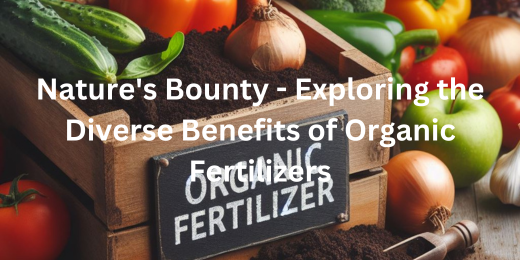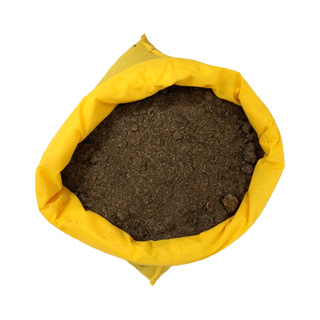
Nature’s Bounty – Exploring the Diverse Benefits of Organic Fertilizers
Organic fertilizer vs chemical fertilizer
Introduction to Organic Fertilizers
Introduction to organic fertilizers marks a shift towards sustainable agriculture practices. Unlike chemical fertilizers, organic fertilizers are derived from natural sources such as compost, manure, and plant residues. They enrich the soil with essential nutrients, fostering long-term soil health and biodiversity without harmful environmental effects.
Furthermore, the benefits of organic fertilizer extend beyond soil nourishment. They promote healthier plant growth, improve water retention in the soil, and reduce the risk of nutrient runoff, thus safeguarding nearby water bodies and ecosystems. Organic fertilizers also foster a symbiotic relationship between plants and soil microorganisms, enhancing overall crop resilience.
On the flip side, when considering organic fertilizer vs chemical fertilizer, the latter offers rapid nutrient absorption but can contribute to soil degradation, water contamination, and dependency. Opting for organic fertilizer instead of chemical options not only results in healthier crops but also upholds sustainable farming practices, ensuring environmental preservation for future generations.
Understanding the Environmental Impact
Understanding the environmental impact of fertilizers is essential for sustainable agriculture. Chemical fertilizers can leach into groundwater, contaminating drinking water and harming aquatic life. In contrast, organic fertilizers promote soil biodiversity, reduce greenhouse gas emissions, and minimise environmental pollution, making them a greener choice for farming.
Moreover, the benefits of organic fertilizer extend to preserving soil structure and fertility in the long term. Chemical fertilizers, while initially boosting crop yields, can degrade soil health over time, leading to erosion and loss of arable land. Choosing organic fertilizer supports soil conservation efforts and ensures the viability of agricultural land for future generations.
Choosing organic fertilizer instead of chemical fertilizers enables farmers to reduce the environmental impact of agriculture while benefiting from sustainable soil management. Embracing eco-friendly techniques not only protects natural resources but also fosters healthier ecosystems and more resilient food systems in response to climate change. This underscores the importance of organic fertilizer vs chemical fertilizer.

Enhancing Soil Health and Nutrient Content
Enhancing soil health is a cornerstone of sustainable agriculture, and organic fertilizer plays a pivotal role in achieving this goal. Unlike chemical fertilizers, which may deplete soil nutrients and disrupt microbial communities, organic fertilizers enrich the soil with essential nutrients while fostering beneficial microbial activity.
Moreover, organic fertilizer improves soil structure and water retention, reducing erosion and enhancing overall soil fertility. By promoting the growth of beneficial soil organisms, such as earthworms and bacteria, organic fertilizers contribute to a thriving ecosystem beneath the surface, supporting healthy plant growth and crop resilience.
On the other hand, when comparing organic fertilizer vs chemical fertilizer, the latter may offer immediate solutions but often result in prolonged soil degradation. Embracing organic fertilizer not only nourishes the soil but also sustains agricultural productivity for future generations, making it a wise choice for farmers committed to environmental stewardship and sustainable land management.
Promoting Sustainable Agriculture Practices
Encouraging sustainable agricultural methods is essential for protecting our environment and securing food sources. The benefits of organic fertilizer are significant, providing a sustainable option that originates from natural sources. This minimizes the threat of soil degradation and water contamination often associated with chemical fertilizers.
By embracing organic fertilizer, farmers can reduce their reliance on synthetic chemicals, thereby mitigating the environmental impact of agriculture. Additionally, organic fertilizers support the principles of crop rotation and biodiversity, promoting a more resilient and ecologically balanced farming system.
When comparing organic fertilizer vs chemical fertilizer, the latter often causes nutrient imbalances, soil depletion, and reliance on external inputs. Transitioning to organic fertilizer promotes a healthier balance between agriculture and the environment, preserving resources for future generations.
Boosting Crop Yield and Quality
Boosting crop yield and quality is a primary concern for farmers, and choosing the right fertilizer can make a significant difference. Organic fertilizer, rich in natural nutrients, enhances soil health and fosters robust plant growth, resulting in higher yields of nutritious and flavourful crops.
Furthermore, when considering organic fertilizer vs chemical fertilizer, the former promotes balanced nutrient absorption in plants, resulting in higher crop quality and resilience to pests and diseases. Unlike chemical fertilizers, which can cause nutrient imbalances and soil degradation, organic fertilizers nurture the soil and endorse sustainable farming approaches.
In contrast, reliance on chemical fertilizers can lead to environmental degradation and long-term soil infertility. By opting for organic fertilizer, farmers can maintain soil fertility while reducing their carbon footprint and preserving ecosystem health. The benefits of organic fertilizers not only comprise crop production but also promotes a healthier and more sustainable agricultural system overall.
Conclusion: Embracing the Power of Organic Fertilizers for Greener Farming
In conclusion, embracing the power of organic fertilizers holds immense potential for greener farming practices. The benefits of organic fertilizer extend beyond crop yields to encompass environmental sustainability and long-term soil health. By choosing organic fertilizer over chemical alternatives, farmers can contribute to a healthier planet while ensuring the future viability of agriculture.
Furthermore, the comparison between organic fertilizer vs chemical fertilizer underscores the importance of making eco-conscious choices in farming. While chemical fertilizers may offer short-term gains, they often come at the expense of soil degradation and environmental harm. On the other hand, organic fertilizers promote soil fertility and biodiversity, fostering a more resilient and sustainable agricultural ecosystem.
In essence, prioritising organic fertilizers aligns with the principles of responsible stewardship of the land. By embracing organic farming practices, farmers can cultivate healthier soils, produce nutritious crops, and protect the environment for generations to come. Let us therefore champion the use of organic fertilizers as a cornerstone of greener, more sustainable farming for a brighter future. You could purchase high-quality organic fertilizers at your local Uyir Organic Farmers Market. You can also buy them online by visiting www.uyironline.in or www.uyirorganic.farm.